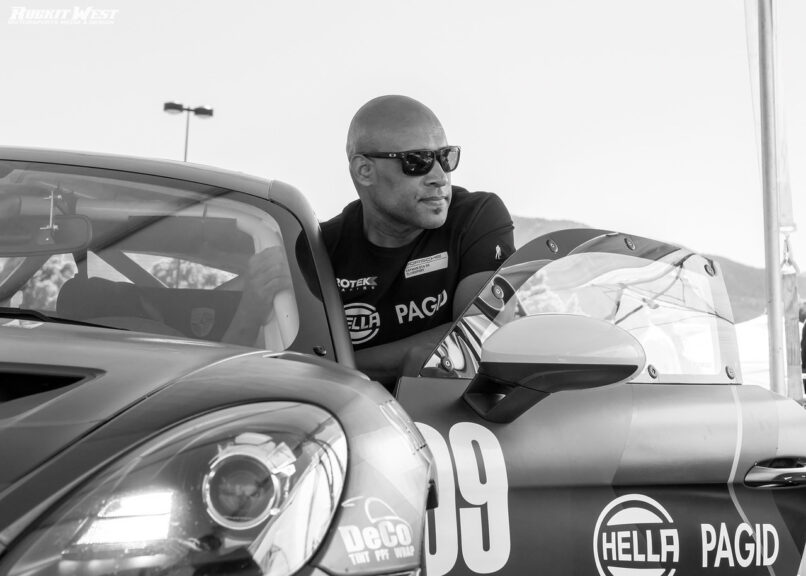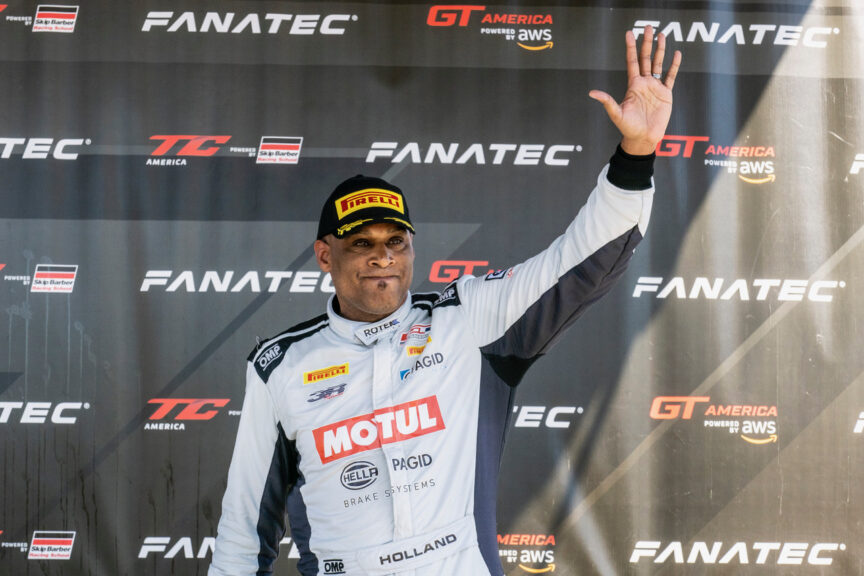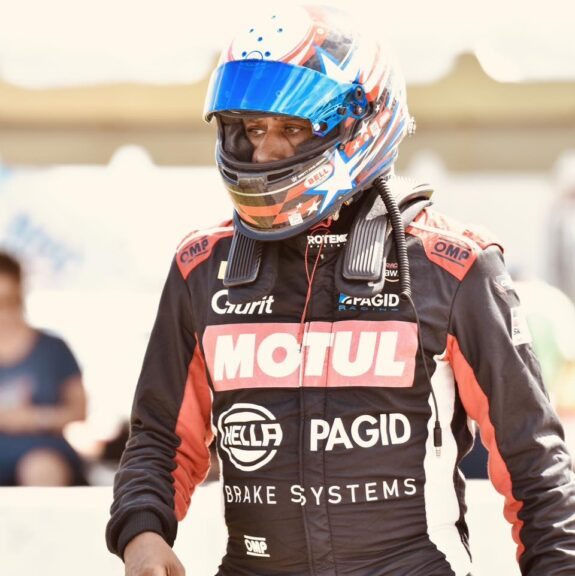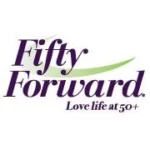Robb Holland is a professional race car driver, automotive journalist, and tv personality with records in the British Touring Car, Pikes Peak, and the World Touring Car Championships. A former collegiate cycling champ, he talks about preparing for the Nashville Grand Prix, the similarities between cycling and racing, and how the drive for competition delivers results in all aspects of his life — especially when competing against folks half his age. Holland is a fierce competitor in the GT4 competition where for the last two years he was the top podium finisher at the Nashville Grand Prix.
His perception of aging and the thrill of competition are inspiring. Key takeaways from the interview include: a peek into the business behind motorsports, a racing 101 to bring the novice up to speed, and the impact mentors and role models play in life.
Here’s a bit of our dialogue.
Q. Tell us about the nail-biting moments that put you on top of the podium (at the Nashville Grand Prix for two consecutive years).
They are all nail-biting moments when you’re on a street course. That’s the nature of street course racing, which, for whatever reason, I just take to like a fish to water.
Tell us about the differences in racing on different courses.
When you’re on a standard road course, we’ll have runoff, gravel traps, wide exit curbing, so there’s a lot more room to, let’s say, make mistakes, or even small mistakes in judgment when you’re placing the car [you] don’t usually have big consequences. With a street course, it’s completely different. The whole entire circuit is lined with massive concrete barriers that if you get it wrong, it’s pretty much catastrophic. Day done. So, there’s really never a point you get to relax, where you can just kind of go, “Okay, I’m just kind of cruising,” or whatever. Every corner has the potential to bite you very, very hard if you even have a small lapse in concentration for a second.
In the interview, Holland continues to share the interesting perspective of being behind the wheel of a race car at speed, underscoring how variable lighting along the Nashville course provides some unique challenges. In addition, he talks about “getting in the zone” for a race and makes a keen comparison between competitive cycling (which he did for years) and auto racing. His colorful stories about the Pikes Peak climb and unknowns (including wildlife on the course) illuminate how all races are unique.
Q. Will you paint a picture for other young men or women to demonstrate how dreams really can come true, and especially the role mentors play?
It’s massive. My dad was a pioneer in the business world for a number of years. He was the CEO of Ben & Jerry’s ice cream. When he got that job, he was the first black CEO of a major corporation in U.S. history. His thing to me was always that he didn’t mind being the first person through the door, but he also wanted to make sure that he wasn’t the last person through that door. And so, for me, that’s the same thing… I’ve been able to work with some incredible people across multiple sports, and those guys were mentors to me. I want to make sure that I can continue my dad’s legacy that way … it gives me the motivation to keep going so that I can keep the door open for as many kids as I can that are following after me.
Holland offers names of mentors in his life and shares why he visits the Davidson County Juvenile Justice Center (adjacent to the Grand Prix track) when in Nashville. He also touches on camaraderie, teamwork, and how moments in motorsports will forever be a part of his life.

Q. What is a piece of advice from your parents or an older adult that (at the time they shared it with you) you thought was silly but now it rings true in your everyday life?
I think all advice that I got from my parents I thought was silly. I was definitely like, “What are you talking about?” It is really funny because it does come full circle. … Don’t forget it will come back around. …My dad gave me the ability to fail, which I think is probably one of the greatest things that you can give somebody. Because that meant that as long as I literally put my heart and soul into everything I did, I had his backing. And so, I was able to do all of these different things. I was able to become a professional cyclist. I was able to become a professional race car driver and race team owner and media personality, and all these other things, because I knew if I gave a hundred percent, I always had my parents backing, and I didn’t forget that. It just took me a long time to realize what that was and how important and how special that was.

Thrill seeker or not, you decide as we listen to this multifaced driver and business owner talk about being a very competitive professional race car driver. Through his wit and candor learn how mentors and family shaped the family man, businessman, and fierce competitor who keeps his mind and body fine-tuned for competition on and off the many circuits in life.

This Squeeze the Day is brought to you by the All of Us Research Program from the National Institutes of Health. Learn how you can help change the future of health by participating in the program.
Visit joinallofus.org to learn more.




